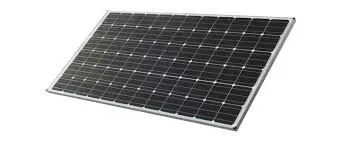solar panel performance cloudy day
Performance of Solar Panels on Cloudy Days
Solar panels are renowned for their ability to convert sunlight into electricity, making them a popular choice for sustainable energy solutions. However, many people question their effectiveness on cloudy days when sunlight is less intense. Understanding the performance of solar panels under these circumstances is essential for making informed decisions about solar energy systems.
Performance of Solar Panels on Cloudy Days
The actual performance of solar panels on cloudy days can vary depending on several factors including the type of solar technology used, geographical location, and cloud density. For instance, crystalline silicon solar panels, which are the most common type, typically perform quite well in diffuse light conditions. Studies have shown that these panels can produce around 10% to 25% of their optimal output on overcast days, depending on the thickness of the cloud cover.
solar panel performance cloudy day

Another vital factor is the location of the solar array. In regions with consistent cloud cover, such as the Pacific Northwest in the United States, solar panels have been designed and deployed efficiently so that they still provide substantial energy. In fact, some solar systems are equipped with technologies that allow them to perform optimally in low-light conditions, thus enhancing efficiency even on gloomy days.
Moreover, advancements in solar technology are continually improving the performance of panels in various weather conditions. Emerging technologies, such as bifacial solar panels, can capture sunlight from both sides, increasing electricity generation even in lower light conditions. Additionally, innovations in solar inverters and energy storage solutions mean that energy generated during sunnier days can be stored and used when production dips, like during cloudy periods.
It’s also worth noting the overall benefits of investing in solar energy. Even with the possibility of reduced output on cloudy days, the long-term financial and environmental advantages outweigh the temporary dips in performance. Solar panels often provide a return on investment through energy savings, tax incentives, and increased property values. They also contribute to reducing carbon footprints, helping combat climate change.
In conclusion, while solar panels do tend to perform less efficiently on cloudy days, they remain effective in generating electricity through diffused light. With advancements in technology and appropriate system design, homeowners and businesses can still rely on solar energy, regardless of cloud coverage. As awareness of renewable energy continues to grow, understanding how solar panels function under various conditions becomes integral to harnessing their full potential. Thus, whether rain or shine, solar energy can be a viable and sustainable choice for the future.
-
Navigating Off Grid Solar Inverter: From Use Cases to Trusted PartnersNewsAug.05,2025
-
Solar Edge String Inverter: A Wholesaler’s Guide to Inverter Technology SelectionNewsAug.05,2025
-
Microinverters: Revolutionizing Solar Energy UseNewsAug.05,2025
-
Future of Monocrystalline Solar Panel Efficiency: Latest Technological AdvancesNewsAug.05,2025
-
Solar Panels for House: A Complete Guide to Residential Solar EnergyNewsAug.05,2025
-
Panel Bifacial Performance in Snow and Low-Light ConditionsNewsAug.05,2025







